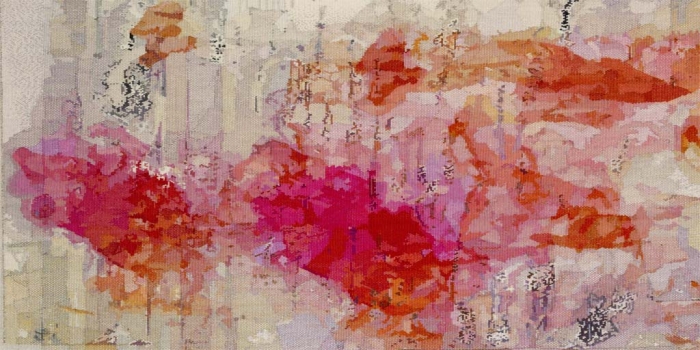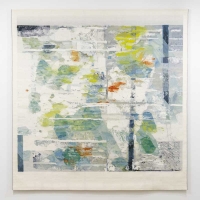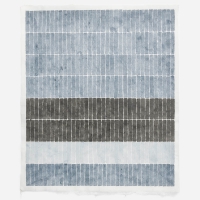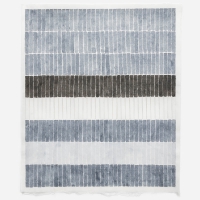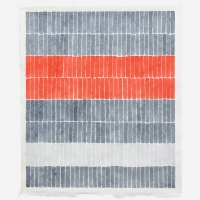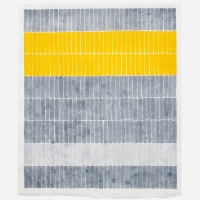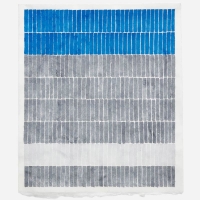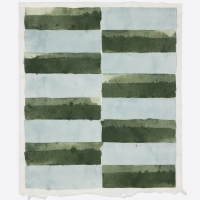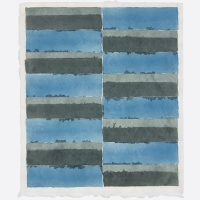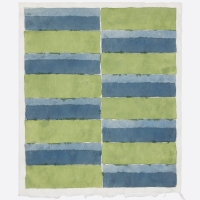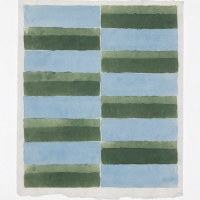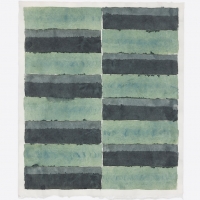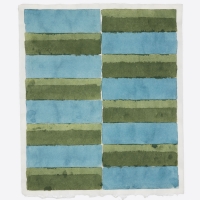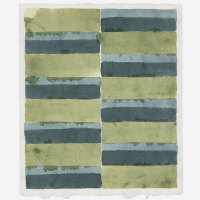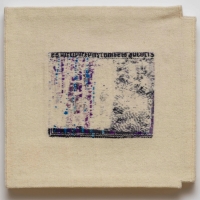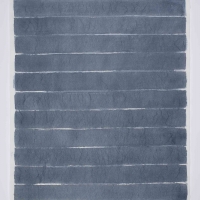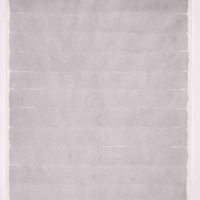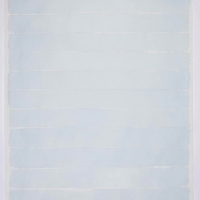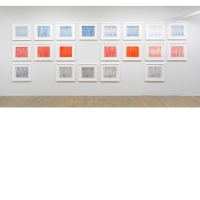Photobased figurative images have appeared in Marcel Marois’ work at the end of the seventies. Different sections of a photograph, cut out of a newspaper report, were inserted in the cartoon’s geometrically structured spaces.1 The composition was then woven on a high-warp loom, the photorealist image being juxtaposed with the solid surfaces in order to draw the gaze to contemporary realities captured by press photographs. 1980 is a pivotal year in the aesthetic evolution of Marcel Marois’ tapestries : the artist alters the initial photographic images through a series of interventions on the cartoon, in which photocopy plays a key role. The analogy with disappearance is connected to themes taken from ecological disasters reported by the media. The woven image recaptures the news item that is no longer present : the transcription reveals its obliteration from collective memory while asserting the evocative power of the final work, achieved through the slowness of the technical process. While constructing the narrative framework, the artist has also appropriated elements from traditional tapestry-making, integrating woven texts, motifs inspired by nature or the juxtaposition of scenes with different temporalities. The geometric structure, always present, has fragmented the composition, and the addition of watercolour to the cartoons has created distinctive coloured atmospheres. The rendering has also evolved towards a pixellated treatment of images, conveyed through the combination of wool threads chosen for each woven stitch. The artist has progressively developed his color langage through a divisionist process, and the characteristic vibration of this type of execution. The large-scale tapestries created with this visual syntax both express the tragic meaning of the event reported almost instantaneously in the newspaper, and its transition towards a historic narrative through the aesthetic of tapestry.
Marcel Marois’ recent tapestries are more abstract than those produced in the first decades of his career. However they have maintained their relationship with the photographic, visible in the image residues and the graininess of the woven stitches. A photographed landscape is the starting point for multiple transformations that make the blacks denser, break down the greys or obliterate the image to the point of its near disappearance. Subsequently, the artist reorganises the cartoon by structuring cut-out fragments with various surface qualities and by superposing oddly shaped watercolour touches that seem to be floating freely on the surface. A slow, flowing movement seems to animate the pictorial space like the slow motion projection of a video still. Paradoxically, the tapestry conveys qualities of fluidity, transparency and gestural freedom, while the piece requires a meticulous combination of coloured threads for each stitch. Through the accumulation of the woven weft, the reference landscape is transformed into a pictorial territory, evocative of natural phenomena whose luminous presence is inscribed on the work’s complex and dense materiality.
1 - The tapestry cartoon is a document created by the artist designer, using mediums of his own choosing : it can be the same size or smaller that the project’s actual dimensions, and is used as a guide for the execution of the woven work.

